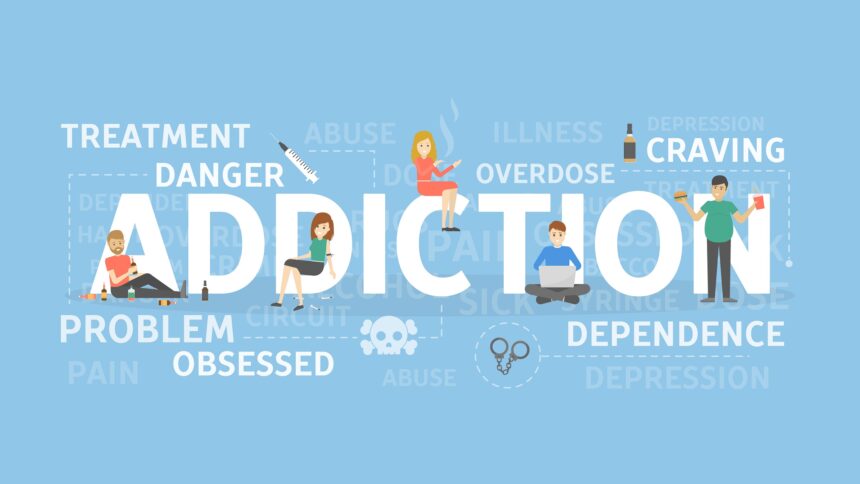Drug addiction in America is not uncommon, although the associated stigma keeps many addicts living secret double lives. Although many people are able to get clean by going to rehab, others may be afraid of mentioning their problems and never get the help they need. Functional alcoholism and drug abuse is a real thing. Many people go to work every day and have an addiction they are also managing. This is the reality. Here are some healthy ways to cope with life’s stresses without using drugs or alcohol
Holistic Therapies
With the increase in prescription pill addiction in America, many patients do not want to be put on more medication. Holistic therapies offer natural ways to deal with the problems in your life that caused you to take drugs, alcohol, or prescription drugs. Holistic therapies include, acupuncture, yoga, meditation, massage and much more. These methods can help people in recovery to fight through mental problems and even pain (a major reason addicts relapse). Holistic rehab centers make people aware of these therapies while in treatment so they can use them when they leave rehab and apply them to their everyday lives.
Art Therapy
Art therapy is one tactic that helps addicts in recovery. Expressing emotions through creativity has proven to improve one’s confidence, and overall mood. According to research, art therapy has many benefits to addicts in recovery including;
-
decreasing denial
-
reduced opposition to treatment
-
providing an outlet for communication
- lessening the amount of shame the individual feels
Animal Therapy
A lot of people are getting therapy animals as the science behind animal therapy has proven to have many benefits for numerous mental disorders. Animal therapy is a great way to experience positive emotions and feelings of acceptance. A study from the University of Missouri College of Veterinary Medicine demonstrates that interacting with animals can increase an individuals level of oxytocin. Oxytocin is the chemical that allows us to feel happy and trusting. Addicts in recovery also benefit from the discipline and responsibility that is learned when owning a dog or other animal.
-
Exercise – Getting on an exercise plan can work wonders for an addict in recovery, especially early recovery when addicts are most vulnerable. Exercise gives someone something to do, and it allows them to add structure to their day. Exercise has positive health benefits as well. After exercising your body produces a natural high that can make you feel better than any drug would. Exercise can play a vital role in determining the success of someone’s recovery. Joining clubs for martial arts and other exercise clubs can help with feelings of belonging as well. Exercise is a common practice at many holistic rehab centers and can help you gain confidence and stay on schedule.
-
Nutrition Therapy– Arguably, nutrition therapy is the most overlooked aspect when developing a recovery plan. Nutritionists say a healthy balanced diet can help addicts stay sober during early recovery. An article from PsychologyToday explains the mind-body connection and nutrition. “When we come into recovery we do not know how to live or take care of ourselves. We’ve spent so long trying to self-medicate and doing damage to ourselves in the process that we’ve forgotten how to be kind to ourselves. By changing our eating habits and incorporating healthy, nutritious meals, we are giving ourselves a way to thrive in the world, to behind the transformation into the magnificent human beings that we are meant to become.” A nutritional plan also allows addicts in recovery to practice discipline and responsibility.
-
Gardening/Horticulture Therapy – Growing plants can give addicts a sense of purpose, responsibility and pride. In the 19th century, “Father of American psychiatry” Dr. Benjamin Rush, first documented the positive effects that working in a garden had on people with mental illnesses. Being in the fresh air that comes from plants can be therapeutic, as well as the pride you feel when your garden looks great. According to the University of North Carolina Horticulture program, horticulture therapy can benefit people through the following ways:
-
physical activity
- relaxation
- enjoyment
- skill development
- creative expression
- sensory stimulation
- intellectual and personal growth
Virtual Reality Therapy
This is not yet commonplace, but researchers are looking into the benefits of virtual reality addiction therapy for addicts in recovery. When you put on the headset you will go into real-world situations like a party for example. You will smell pizza, marijuana smoke, maybe see cocaine laying on the table. When the addicts go through the visual and other sensory triggers they are unconsciously preparing themselves for those difficult situations in the real world. Some argue this can trigger addicts in recovery to want to use and think it is safest to experiment with this idea in a restricted area, i.e. during an inpatient rehab visit.
Therapies can Turn into Lifelong Habits
There are many therapies that one can utilize when in recovery from addiction, or to prevent drug and alcohol use, to begin with. The routine of everyday life can become mundane at times, so learning new therapies and ideas to spice up your life could work wonders. Where one therapy fails, you might find the one that fits you best. However, it is also important to know that these therapies can bud into hobbies and lifestyle changes that will help you on your journey through life.

